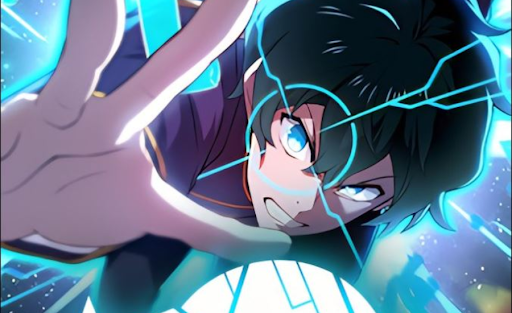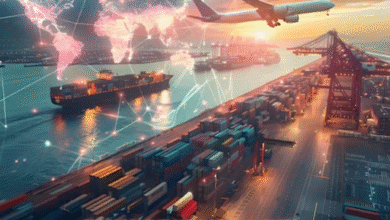Transcending The Future With Space-Time Magic: Unlocking The Mysteries Of Time And Space In Comics

In the expansive world of comics, transcending the future with space-time magic stands out as one of the most fascinating and mind-bending concepts. This magical ability to control, alter, and manipulate time and space allows characters to step beyond the limits of reality, blurring the lines between the past, present, and future. With this kind of magic, heroes and villains alike can alter the flow of events, explore alternate dimensions, and rewrite the very fabric of reality itself. For readers, it presents endless opportunities for storytelling that stretch the imagination and challenge conventional ideas about what is possible in the universe.
Space-time magic, however, isn’t just a plot device—it is a narrative tool that adds layers of complexity to stories. It can lead to deep philosophical questions about fate, free will, and the consequences of meddling with time. These concepts are explored in various ways throughout the comic book world, from time-traveling superheroes to villains who seek to rewrite history to suit their needs.
The Concept Of Space-Time Magic In Comics
At its core, space-time magic in comics refers to the ability to manipulate the dimensions of time and space. Whether it’s traveling through different eras, creating alternate universes, or distorting the flow of events, characters with this power can transcend ordinary limits. This concept often combines elements of both science fiction and fantasy, allowing for a blend of complex theoretical ideas with the thrill of supernatural abilities.
In many stories, the use of space-time magic has a profound impact on the plot. Characters who possess such abilities can change history by preventing or causing events that were previously set in stone. The potential of altering timelines adds an air of unpredictability, which keeps readers on the edge of their seats. One moment a hero may be struggling to save the world, and the next, they’re traveling through time to undo the damage caused by an alternate version of themselves.
The manipulation of space-time often introduces paradoxes, such as the famous “grandfather paradox,” where a character might travel to the past and alter events, risking the destruction of their own existence. These paradoxes add a layer of tension and excitement to the narrative, as the stakes are raised whenever time is altered.
How Space-Time Magic Transcends Traditional Storytelling
Space-time magic is particularly captivating because it transcends traditional storytelling by breaking the conventional rules of time and space. This allows characters to experience the universe in ways previously unimaginable. For example, a hero may find themselves in a future they’ve yet to experience, or in an alternate universe where the usual laws of physics don’t apply. This freedom opens up endless creative possibilities, allowing for a more dynamic and flexible narrative.
A key aspect of time manipulation is the ability to witness multiple timelines simultaneously. Imagine a character who sees not only their future but also various alternate versions of their life, each with different outcomes. This ability deepens character development, as it allows the character to understand the consequences of their choices more clearly. The weight of their decisions—whether positive or negative—becomes more tangible, leading to a more profound transformation.
Moreover, the power to transcend time gives creators the opportunity to experiment with non-linear storytelling. Instead of presenting the story in a simple, chronological order, the narrative can jump back and forth across time. This structure reveals new information at unexpected moments, keeping the reader engaged and eager to uncover how each piece of the story connects across different points in time, creating a complex and compelling narrative.
The Role Of Space-Time Magic In Character Development
Space-time magic is not just a plot device; it deeply influences character development. Characters who possess this power often face intense emotional struggles as they navigate the consequences of altering time. Even small changes to the timeline can have significant, far-reaching effects, forcing them to confront difficult choices.
For instance, a hero who can see multiple versions of themselves in alternate realities might gain power but also face isolation. They may struggle to determine which version of themselves is “real” or suffer the trauma of witnessing the collapse of countless parallel universes. The emotional toll of potentially never returning to their original timeline can create internal conflict, driving their character arc.
Villains who wield space-time magic are often consumed by their power, becoming more dangerous as they seek ultimate control over time and reality. In this pursuit, they may lose sight of their original goals, becoming detached and turning from relatable characters into tragic figures, heightening the conflict of the story.
The ethical dilemmas presented by manipulating time add layers to character growth. A hero, for example, might question whether it’s right to alter history to save a loved one, even if it leads to irreversible consequences. These moral conflicts force characters to wrestle with their values, providing opportunities for deep introspection and growth.
Space-Time Magic In Modern Comics: Expanding The Narrative Landscape
Over the years, space-time magic has become more prominent in modern comics, particularly with the rise of multiverse storytelling. Characters like Doctor Strange from Marvel Comics and The Flash from DC Comics have become iconic figures precisely because of their abilities to manipulate time and space. These characters’ powers go beyond mere time travel—they can alter the very fabric of reality, offering readers a glimpse into worlds that exist outside of the constraints of conventional storytelling.
The multiverse, a concept that has gained significant traction in recent years, allows characters to interact with countless alternate versions of themselves and the world. This opens up new narrative avenues for writers to explore. For example, storylines may involve multiple heroes from different timelines coming together to prevent a universal catastrophe, or villains from different dimensions may unite to challenge a common enemy.
In the Marvel Cinematic Universe (MCU), space-time manipulation is explored through the concept of the multiverse, where multiple realities exist simultaneously. This enables a more expansive storytelling approach, where characters can cross over between worlds, meeting different versions of themselves or their allies. The introduction of the multiverse has allowed for exciting new stories that challenge the very nature of existence.
Space-Time Magic: A Gateway To Infinite Possibilities
At its core, space-time magic represents the ultimate freedom in storytelling. It allows writers and creators to break free from traditional narrative constraints, offering an opportunity to explore infinite possibilities. The power to transcend time and space provides a platform to address deep philosophical questions, such as whether the future is set in stone or if individuals can change their destiny.
This idea of infinite possibilities is also appealing to readers. It allows them to imagine a world where anything is possible, where time is not a linear progression but a fluid entity that can be molded and shaped. Space-time magic enables readers to experience worlds where anything can happen, from apocalyptic futures to utopian societies, and everything in between.
The Limitations And Challenges Of Space-Time Magic
While the power of space-time magic is extraordinary, it is not without its limitations and challenges. The very act of manipulating time and space can cause irreparable damage to the universe. In many stories, altering one moment in the past has unintended consequences that ripple throughout the future. A seemingly small change can result in catastrophic outcomes, such as the collapse of entire timelines or the destruction of realities.
Characters who wield space-time magic must often face the consequences of their actions. Even if their intentions are noble, the mere act of changing the past can have unforeseen repercussions. This creates a tension between the desire to manipulate time for personal gain and the ethical responsibility that comes with such power.
Moreover, the ability to alter time and space often introduces paradoxes that challenge the very structure of reality. A character might create a paradox by interacting with their past self or preventing an event that was crucial to the formation of their own existence. These paradoxes force the characters to navigate complex moral and philosophical dilemmas, adding depth to their development and to the overall plot.
FAQs
Q. What is space-time magic in comics?
A. Space-time magic in comics refers to the ability to manipulate time and space, allowing characters to travel through different eras, create alternate universes, and alter the course of events.
Q. How does space-time magic affect character development?
A. Characters with space-time magic often face emotional struggles and moral dilemmas as they deal with the consequences of altering time. This leads to significant personal growth and internal conflict.
Q. What role does space-time magic play in storytelling?
A. Space-time magic breaks traditional storytelling rules by allowing for non-linear narratives, multiple timelines, and alternate realities, making the story more dynamic and unpredictable.
Q. How does space-time magic impact villains?
A. Villains who wield space-time magic often become consumed by their power, losing sight of their original goals, and transforming into more dangerous and tragic figures.
Q. What are the challenges of space-time magic?
A. Manipulating time and space can cause unintended consequences, such as catastrophic changes to the future or paradoxes that challenge the very structure of reality.
Q. How is space-time magic explored in modern comics?
A. In modern comics, characters like Doctor Strange and The Flash use space-time magic to manipulate realities, and the multiverse concept allows for expansive storytelling across alternate timelines.
Conclusion
In conclusion, the theme of transcending the future with space-time magic adds a fascinating layer to the world of comics, combining elements of science fiction, fantasy, and philosophy. Through the manipulation of time and space, characters are able to break free from the constraints of reality, offering readers an opportunity to experience an ever-expanding narrative landscape.
As comics continue to explore the limitless possibilities of space-time magic, they challenge our understanding of time, fate, and existence. Whether it’s a hero trying to correct the future, a villain rewriting reality, or a character grappling with the emotional consequences of their choices, space-time magic enriches storytelling in ways that few other elements can. As long as the power to transcend time and space exists in the pages of comics, fans will continue to be captivated by the endless potential it offers.
Stay in touch for more updates and alerts visit: Usa VyVyManga





